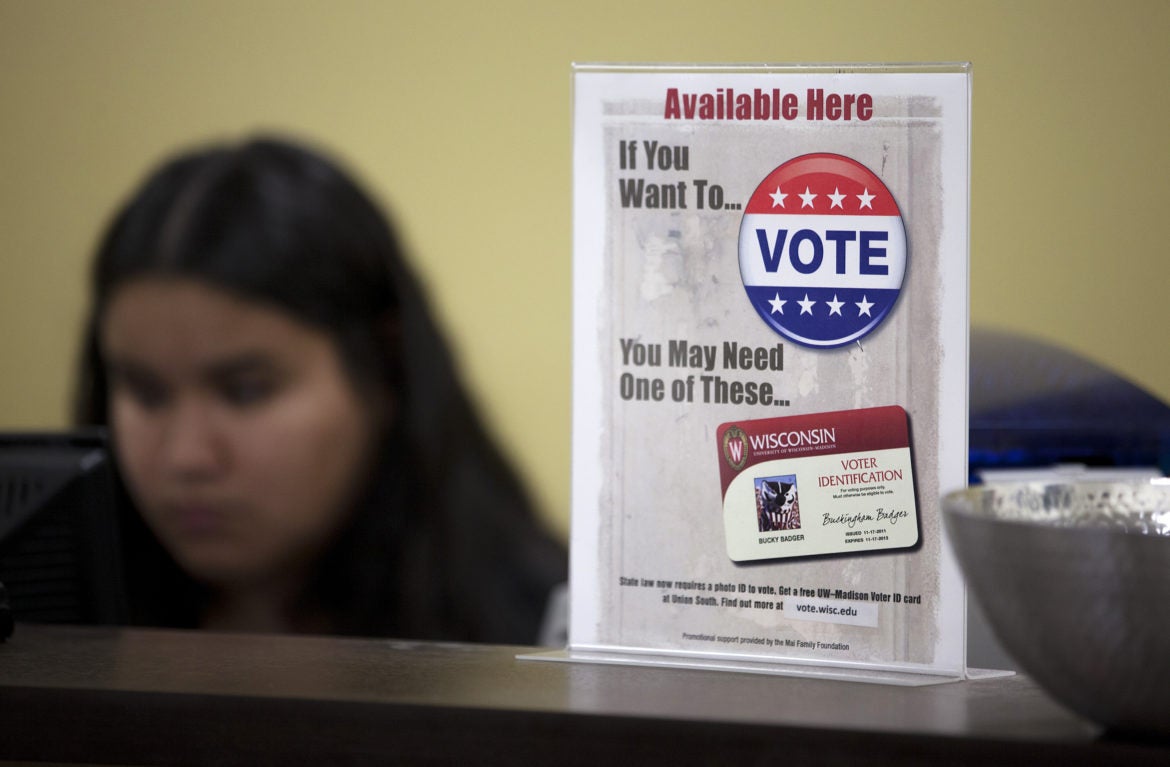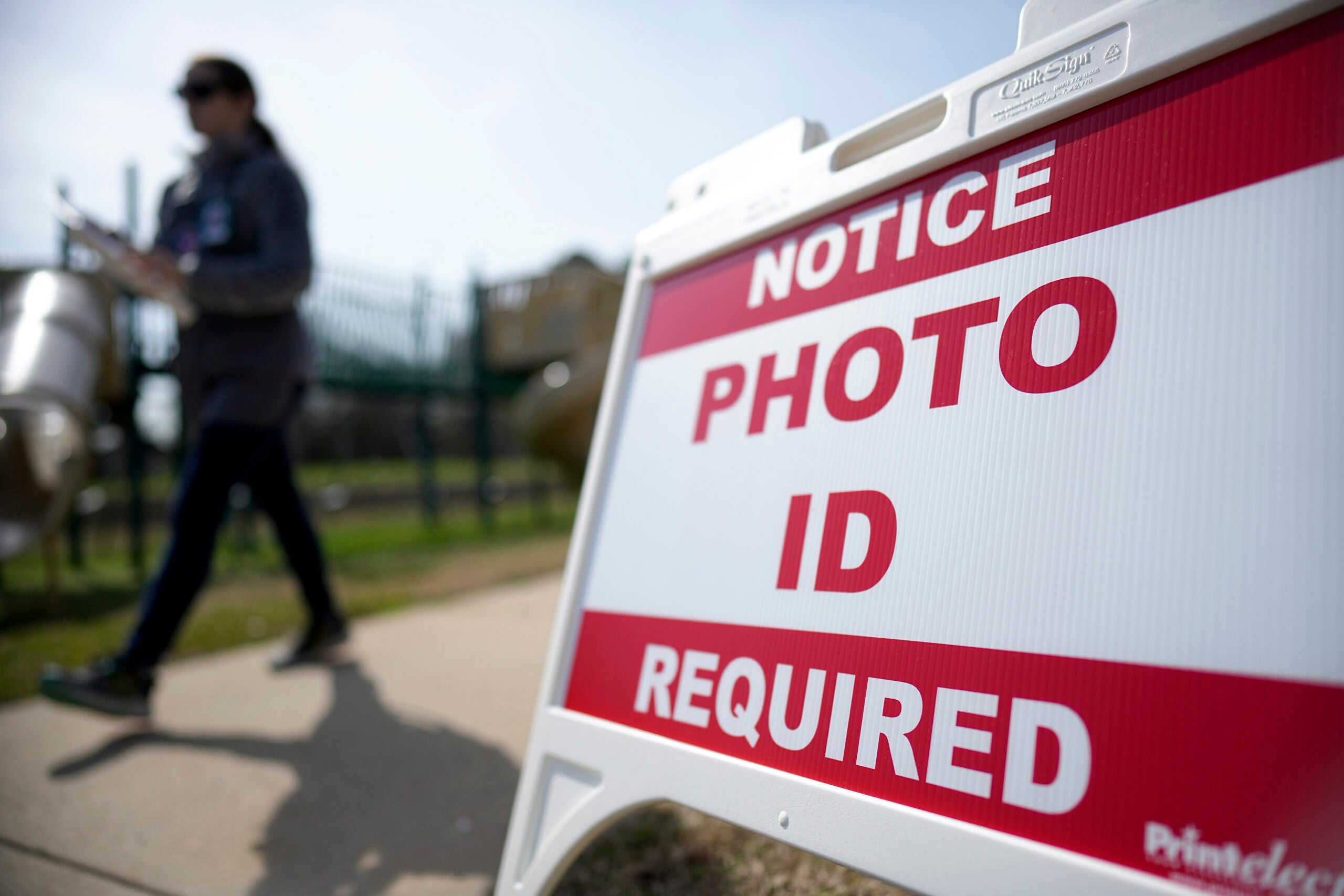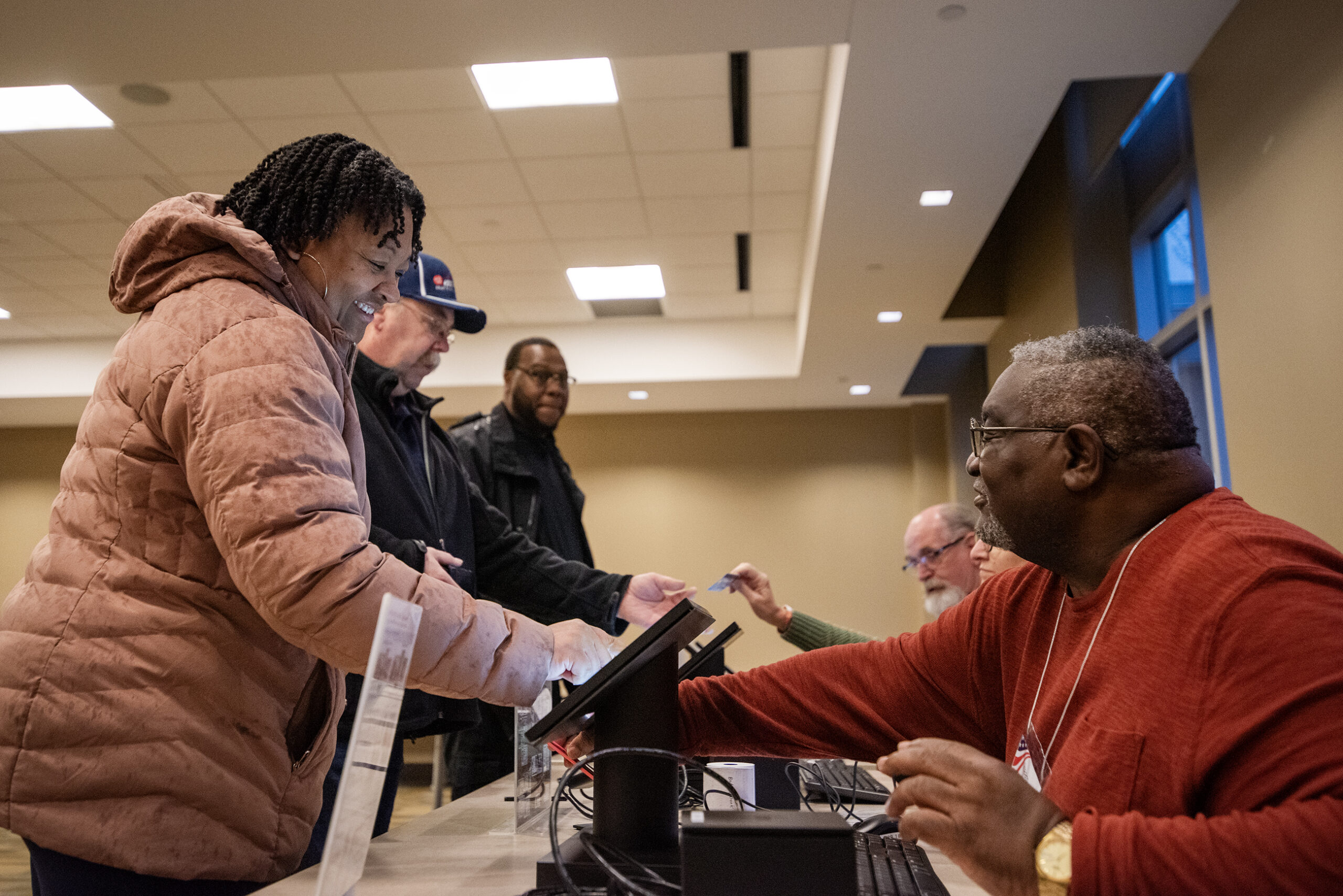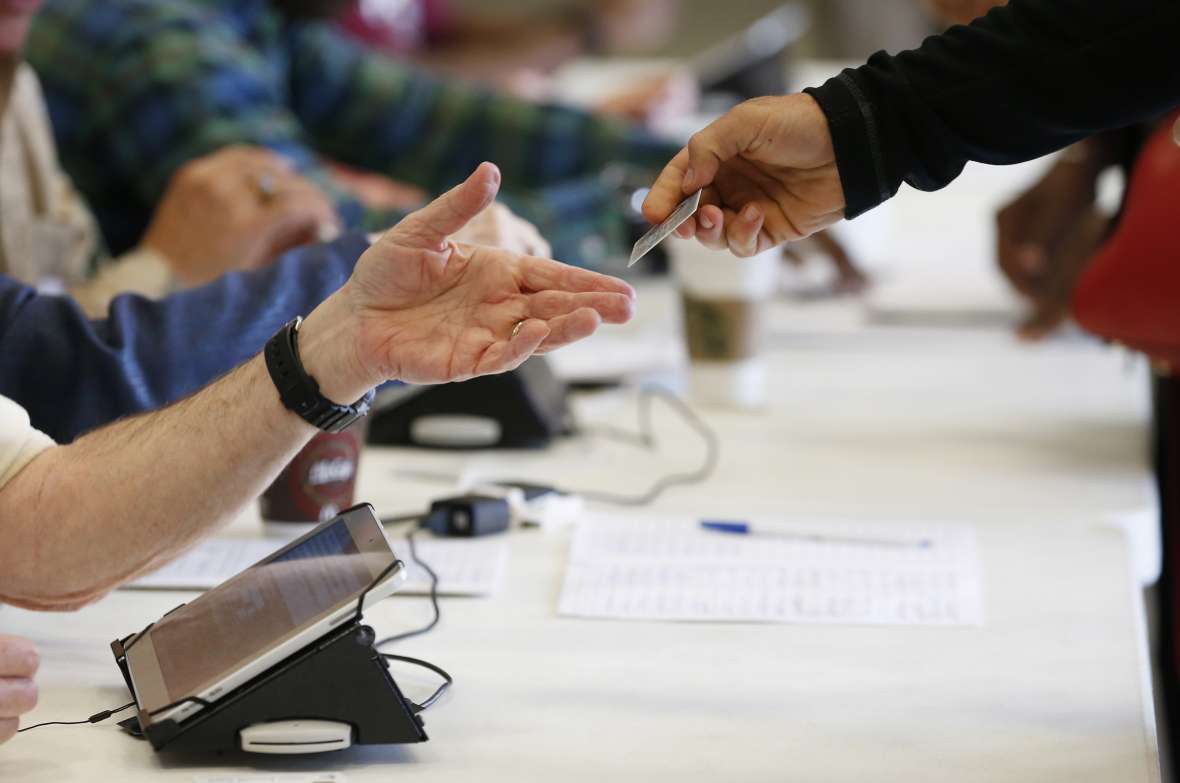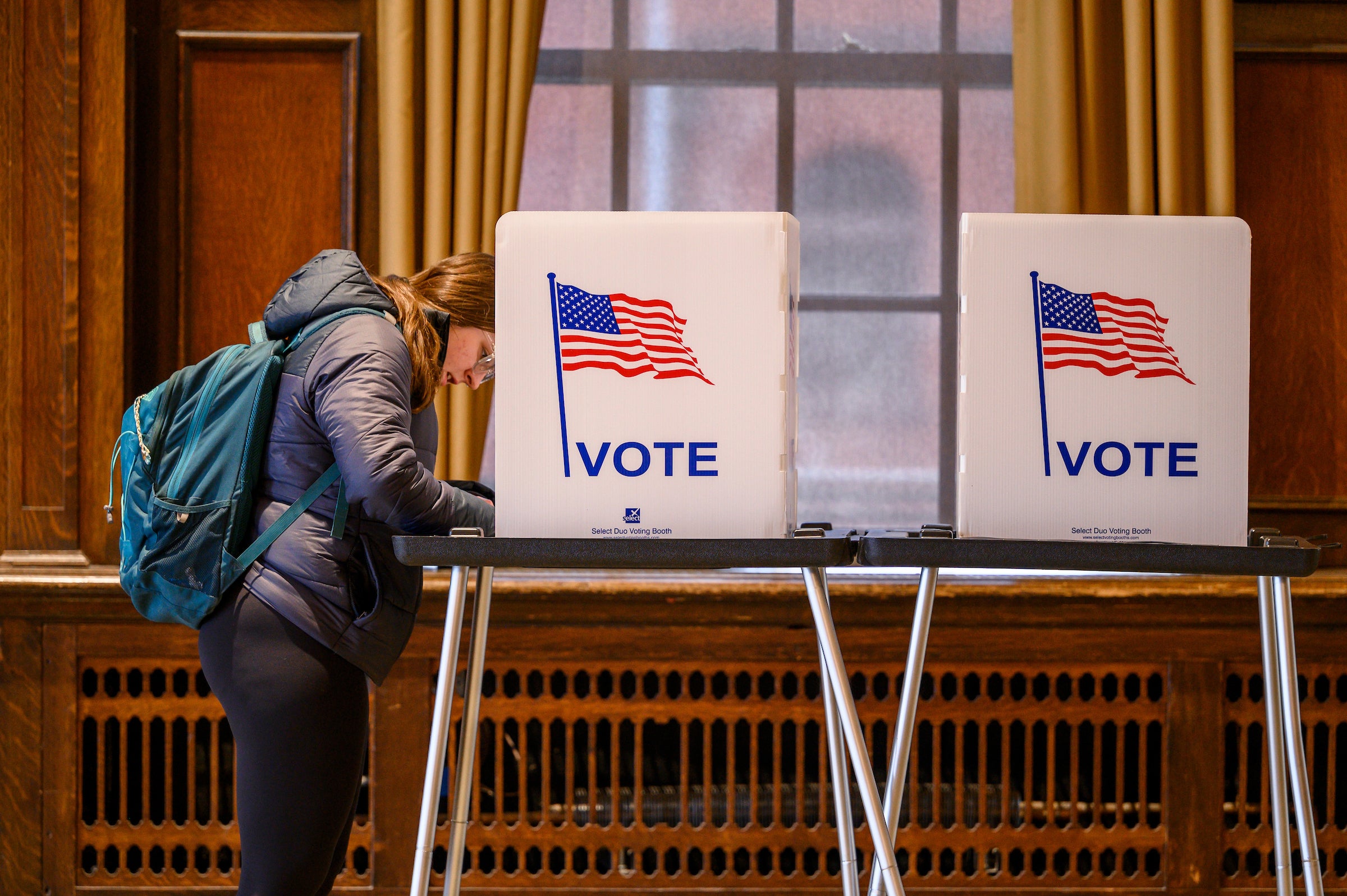Wisconsin lawmakers held a public hearing on a proposal to enshrine Wisconsin’s existing voter ID law into the state constitution on Tuesday, the first step toward passing it through the Legislature and eventually bringing it before voters.
Republicans on the Senate Judiciary Committee then approved the proposal, against Democratic opposition, setting the stage for the Legislature as a whole to vote on it — which could happen as early as this week.
Supporters of ID laws say they’re a shield against voter fraud, while opponents say they serve to discourage voting. And Republican co-authors of the constitutional amendment said they’re looking to enact it before a new justice joins the Wisconsin Supreme Court.
Stay informed on the latest news
Sign up for WPR’s email newsletter.
“If we wait on something like this, then (the court) could rule that the photo ID is unconstitutional, and then it would be a harder time,” said Rep. Patrick Snyder, R-Weston, the bill’s co-author. “This gives the electorate the opportunity to make that decision.”
The GOP-authored proposal, which would render permanent a state law requiring a voter to show photographic proof of identity before casting a ballot, already passed the Legislature last session. If it passes a second time, it will go before voters, bypassing any opportunity for Gov. Tony Evers to veto it.
If that second passage happens quickly enough, it could go before voters as soon as April, on the same ballot as a high-profile Wisconsin Supreme Court race. Republicans have argued that enshrining the law in the state constitution would make it difficult for the high court, which currently has a liberal majority, to do away with the law.
Making voter ID a constitutional requirement, rather than an act of the Legislature, would also make it all but impossible for Democrats to overturn the requirement if they win majorities in the Legislature in the future.
“The only way to ensure that our future Supreme Court will not overturn voter ID is to enshrine this basic election integrity law in Wisconsin’s constitution,” said Sen. Van Wanggaard, R-Racine, who co-authored the bill.
At Tuesday’s hearing, Democrats immediately accused their Republican colleagues of playing politics by calling the committee hearing with little notice, just one day after the 2025 legislative session began.
“Why are we here, at 9:00 in the morning, the day after we were sworn in?” asked Sen. LaTonya Johnson, D-Milwaukee.
She argued that Republicans were prioritizing the wrong issues as part of a power grab.
“If we are setting the tone that this is our priority … then that’s an issue,” she added.
“This is up today because it’s ready to go,” Wanggaard said.
Sen. Kelda Roys, D-Madison, argued that voter ID in general makes it harder for ordinary people to vote.
“I think when you gloss over the actual problems that real people have just because you didn’t experience it, I think that’s evidence of very lazy policy making,” she said. “We are here to make policy for every person in the state.”
Wanggard argued that having the right to vote “doesn’t lessen your responsibility.”
“You gotta participate. You gotta be a participant,” he said. “But I don’t think there’s anything wrong with saying that (you have to) have something to identify who you are and that you’re really that person and that you’re eligible to vote.”
The Senate is scheduled to vote on the proposal on Wednesday, and the Assembly is scheduled to have its own committee hearing on the proposal that same day, before they are scheduled to vote on it on Jan. 14.
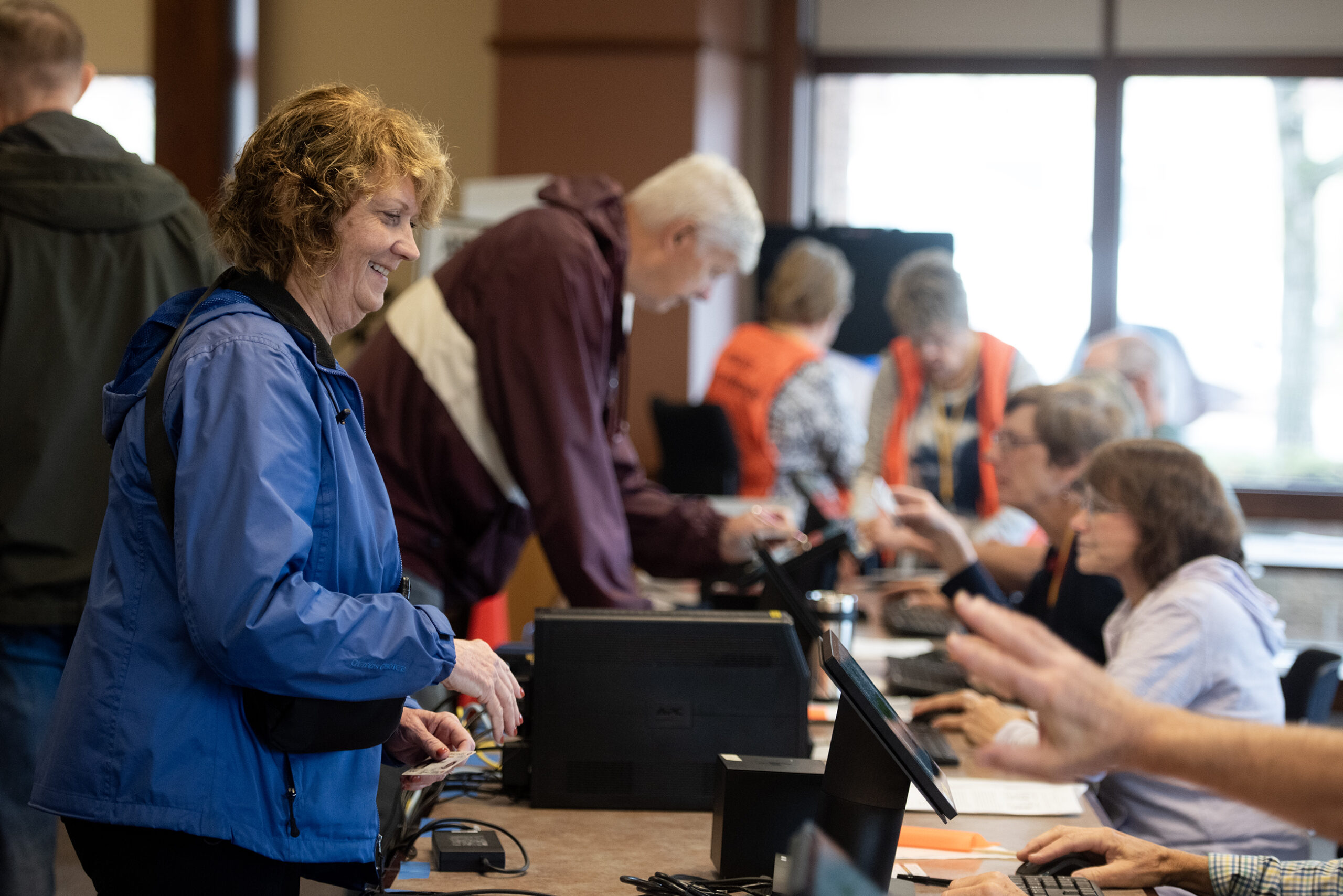
Existing voter ID law faced years of challenges
The proposed constitutional amendment passed the Legislature once before, on pure party lines, but the law it would make permanent has been controversial since it was enacted under Gov. Scott Walker in 2011. After a host of lawsuits, it was ultimately upheld in both state and federal court.
While a conservative majority on the state Supreme Court ruled in favor of Wisconsin’s voter ID law in 2014, Wanggaard argued the liberal majority on the current court could inspire a new lawsuit.
He pointed to April’s upcoming race to fill a vacant seat on that high court — which could once again determine the court’s ideological balance — as a reason to move quickly against prospective challenges.
That race pits Brad Schimel, a Waukesha County judge and former Republican attorney general, against Susan Crawford, a Dane County judge who formerly represented Democrats and Planned Parenthood as an attorney. Both are running to fill a seat that will be vacated after Justice Ann Walsh Bradley, a liberal, retires.
On Tuesday, critics of the voter identification laws argued they raise a hurdle to voting, and that some communities — including people of color, low-income people, urban dwellers and students — are less likely to have access to required forms of identification.
Lisa Hassenstab, the public policy manager at Disability Rights Wisconsin, argued that people with disabilities can struggle to obtain photo ID.
“A number of Wisconsin residents who have a disability don’t drive, they don’t have a driver’s license, they may not have other photo ID required to vote,” she said. “Positioning the DMV as the primary place for Wisconsinites to get a photo ID increases barriers for a number of people.”
Republicans on the committee argued that nonprofits and other organizations can help to fill the gap in access to obtaining identifications.
As written, the proposed constitutional amendment would allow the Legislature to create exceptions to the requirement, and voters without proper identification could still cast provisional ballots, although they would have to present an ID later in order to make those votes official.
Wisconsin Public Radio, © Copyright 2025, Board of Regents of the University of Wisconsin System and Wisconsin Educational Communications Board.

